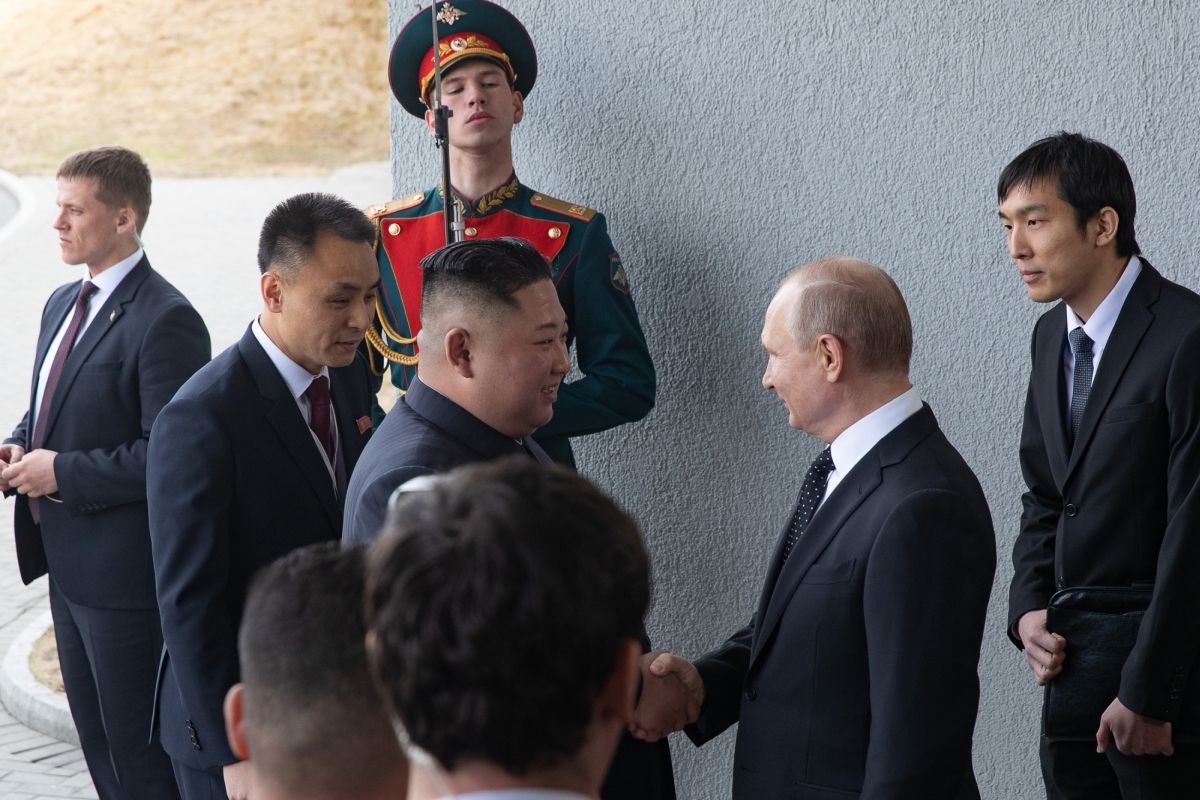The Russian president, Vladimir Putin, paid a visit to Pyongyang last week and signed a defence pact with reclusive North Korean leader, Kim Jong-un, as he looks for new allies who can help him increase Russia’s supply of munitions for the war in Ukraine. As part of this mutual aid deal, the two leaders promised that each country will come to the defence of the other if attacked. Kim also promised North Korea’s full support for Putin’s invasion of Ukraine. What’s interesting about the entire Russia-North Korea showy display of camaraderie is China’s response: silence.
China has misgivings about how things are unfolding, which reports suggest prompted Chinese president Xi Jinping’s call to Putin to call off the latter’s visit to Pyongyang. Obviously, Putin didn’t heed Xi’s request. Why would Beijing be so rattled by the Russian-North Korea defence treaty? After all, China has its own defensive pact with North Korea, which was inked in 1961 and renewed in 2021. Beijing also has a “no limits” partnership with Russia. Logically, if China could sign its own defence treaty with North Korea, so can Russia. But the pact made by Putin and Kim severely threatens Chinese security. China was already worried that whatever control it has over North Korea was weakened when Pyongyang reportedly supplied almost 7,000 containers worth of weapons to Moscow.
Advertisement
And this is why, in April, the Middle Kingdom sent its third most senior leader within the Chinese Communist party hierarchy, Zhao Leji, to assure the North Korean strongman that Beijing was still a strong ally. Now the defensive pact that draws Moscow and Pyongyang closer threatens to further diminish China’s influence over Kim. The Kremlin knows that one of Beijing’s greatest fears is that a renegade North Korea may one day point its weapons at China. And this is a key reason behind Putin’s peace treaty with Pyongyang.
For decades, China had tried to maintain its influence over Pyongyang by being the mediator between North Korea and the rest of the world. This included attempting to curb North Korea’s nuclear ambitions. Beijing does so to safeguard its own safety and survival, and probably believes that as long as North Korea remains dependent on China, it wouldn’t bite the hand that feeds it. China also remains North Korea’s biggest trade partner. This all sounds awfully bizarre, since China’s mutual defence pact with North Korea suggests that both nations are close allies. But North Korea has a tradition of defying China, and this deal with Russia might embolden it further – and that will be worrying Beijing.
In 2017, for instance, Kim Jongun, in clear defiance of China, ordered the assassination of his half-brother, Kim Jong-nam, in Malaysia. And when China retaliated by halting all coal imports from North Korea into China, North Korea not only condemned Beijing for “dancing to the tune of the United States”, but also vented its anger by firing missiles in the direction of Japan. But where the missiles originated from in North Korea and the distance that they covered towards the direction of Japan provided China with a rather grim check on reality: North Korea’s weapon capabilities extend to major Chinese cities.
The Sino-Korean animosity dates back centuries and took shape when Korea was a vassal state of imperial China. Unfortunately, this animosity extended to modern times when Mao Zedong decided to station Chinese troops in North Korea even after the conclusion of the Korean war, and when Beijing did not aid Pyongyang in its nuclear ambitions. It didn’t help either that the founding leader of North Korea, Kim Il-sung, was suspected of espionage and was nearly executed by the Chinese Communist party in the 1930s.
All this history plays a part in what decisions and alliances are being made today, and why. It would be a serious mistake to think that the Russians, even in desperation, would believe that making North Korea an ally would turn the tide of the Ukrainian-Russian war in Russia’s favour. But this move, and his recent trip to Vietnam, shows Putin’s desperation. Even if Pyongyang continues to supply Russia with muchneeded ammunition and weapons, Moscow will need greater technology and firepower to win against an Ukraine that uses weapons supplied by the US and Europe. This fact is not lost to Putin, and he knows that for Russia to stand a winning chance in the war that he started in 2022, requires its partner of “no limits” to stand firmly by Russia’s side. But beyond supplying Russia with the dual-use technology (which could be used for civilian or military purposes) to fuel Russia’s industrial war complex, China appears to have fallen short of supplying actual weapons to Russia. Even if China wanted to provide weapons to Russia it can’t.
This is because it fears further antagonising the west, and triggering economic sanctions would prove lethal for an already ailing Chinese economy. China knows that it needs a strong Russia so that the west doesn’t consolidate its resources to deal with the perceived Chinese threat. But on the other hand, helping Moscow may prove too much for Beijing to stomach since that would harm China’s economy. So, Putin needs to force Beijing’s hand, and the peace treaty that he just signed with North Korea might just do the trick.
(The writers are, respectively, Assistant Professor of Business Economics, University of Nottingham and Associate Lecturer in International Relations, University of St. Andrews. This article was published on www.theconversation.com)











